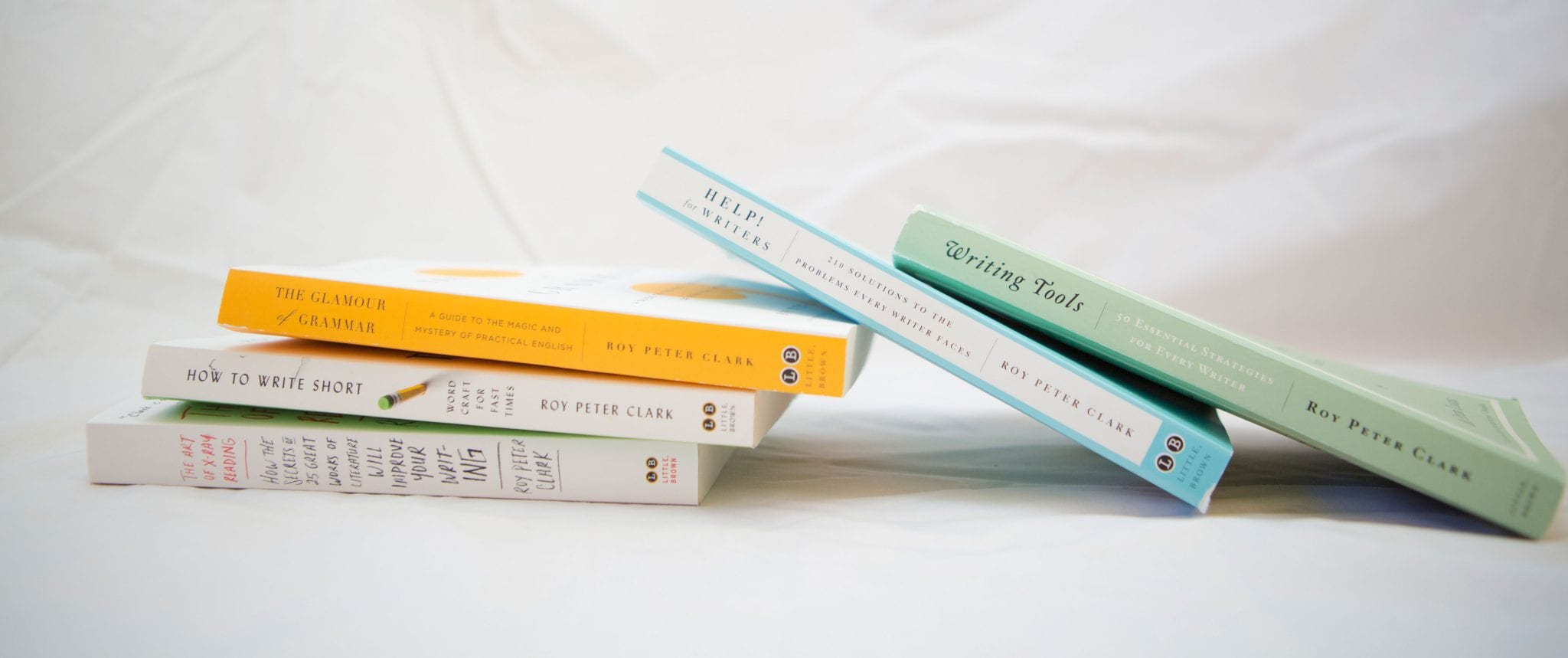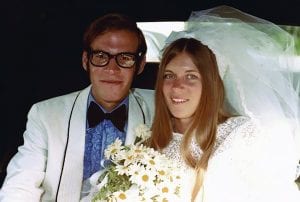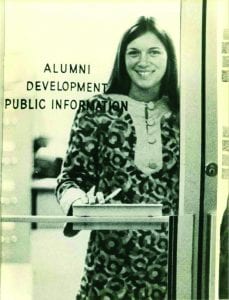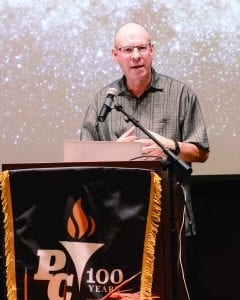April 19, 2017
Dr. Roy Peter Clark ’70: What a Difference a Half Century Makes

By Dr. Roy Peter Clark ’70
As a member of the Class of 1970, I had the privilege of witnessing the 50th anniversary of Providence College and attending the celebration of its centennial. What a difference a half-century makes. If you prefer the way the College is now, as I do, you can thank the classes of ’68, ’69, ’70, ’71, and ’72.
The student activism of those years resulted in reforms that enhanced PC’s vitality and academic standing: restructuring the Corporation, reform of the curriculum, and, most important, co-education.

I remember a debate in 1970 in which I argued for coeducation, while a member of the College administration insisted that “women lack the intellectual rigor of men.” I have put that phrase in quotes because I remember it so well. Let’s say, for the record, that I was right and he was wrong. I’ve heard President Rev. Brian J. Shanley, O.P. ’80 tell a group of alumni that if admissions were based on academic merit alone, the student body of PC would be weighted even more toward women than the 58% now represented.
The Class of 1970 was the only class in PC’s history that did not complete its final year. After four students were shot and killed at Kent State University in May 1970 during a protest of U.S. involvement in Vietnam, administrators of several colleges, anticipating student strikes, called off the last month of the school year.
Most students went home early, only to return in June for a graduation ceremony. I had a girlfriend in town, Karen Major, and wanted to hang around as long as possible. Students from PC, Brown, and the Rhode Island School of Design planned social action. There were voter registration drives. Small teams met with business groups to make a case against the war. Especially active was a classmate named Robert McIntyre ’70, a math major and Liberal Arts Honors Program student, who would go on to become the longtime director of Citizens for Tax Justice.
Bob would marry his girlfriend from RISD. I would marry Karen Major. I was salutatorian at PC and earned the honor of class orator at graduation, where I spoke on what it meant to be a “man of peace in a time of war,” but my greatest achievement was winning Karen’s attention, affection, and then her hand.
The first women to attend PC as full-time undergraduate students joined the College in 1971. From 1966 to 1970, if you desired the company of women at the College, it meant high school girls studying in the library, or students bused in for mixers, or the few young women who worked on campus.

Karen fell into that last category. She graduated from Johnson & Wales University with secretarial skills and worked in the Alumni Development Office on the ground floor of Harkins Hall. She was an astonishingly beautiful young woman with blue eyes and blondish hair that hung to her waist. From a working-class family off of Branch Avenue, she made her own clothes, including skirts shorter than a Hemingway sentence. With a glass door on the office, she was on display and attracted the constant attention of hundreds of young men trudging to class — and the occasional Dominican friar.
I had a secret advantage. I had a student job in the Alumni Office, helping to produce the weekly calendar of events, and my supervisor, Kay Morin, was a friend of Karen’s family. Our first date was a concert in Alumni Hall by Canned Heat, a group that played at Woodstock.
A year after my graduation, 1971, we were married by Rev. John Cunningham, O.P. ’50 on a hot August afternoon in Guzman Chapel. Ray Sickinger ’71, a student who would become — and remains — a PC history professor, sang a Simon & Garfunkel hit, “Bridge Over Troubled Water.” Our first dance was to “Something” by the Beatles, so our musical choices have stood the test of time.
The motto of PC is “Veritas,” and, truth be told, the College was not a very good place in 1966 for many students to learn. The social atmosphere was repressive. The required philosophy and theology courses offered watered-down Thomas Aquinas to Rhode Island’s future professionals. That was a significant mission, but not for me.
There were havens of excellence, and I took advantage of them. The Honors Program and the English Department included teachers who have become PC legends: Rev. Paul van K. Thomson, Rodney Delasanta ’53, Rene Fortin ’55, Father Cunningham, Rev. Thomas Coskren, O.P. ’55, Richard Grace ’62, Brian Barbour, and John Hennedy, just to name the teachers who worked most closely with me.
For the Honors Program, the College nurtured us like orchids in a hot house. Each week we read a classic book and wrote a 1,000-word essay on that work: from Homer to Freud. About 15 of us would meet in a tiny room in the bowels of Alumni Hall. We wore ties, drank coffee, munched on cookies, and worked with not one, but two expert scholars.

Our tiny team of brainiacs included the likes of Lindsay Waters ’69, now an influential editor at Harvard University Press, and Austin Sarat ’69 & ’08Hon., one of the most popular professors in the history of Amherst College. I remain in touch with both of them.
Karen and I have been married for 45 years. One year ago, she was diagnosed with breast cancer. She was holding the house telephone on which her doctor was confirming the diagnosis of cancer when her cell phone rang. It was her sister from Rhode Island delivering the news that their mother had died. One phone in her right hand. One phone in her left. What’s your definition of a bad day?
Two surgeries, three months of chemotherapy, and 37 doses of radiation have left her free of any signs of cancer, with an optimistic prognosis, and an astonishing head full of the curliest hair you have ever seen. We call it her million-dollar perm. Because of Karen’s treatments, neither of us could travel for most of a year. We could not even attend the funeral of her mom. But the year passed, and we both gained strength and confidence in her recovery.
Last fall, PC asked if I could return for an Honors Program symposium panel discussion on “Truth in Contemporary Media,” one of the centennial events.
It was a memorable and emotional trip. We would finally get to visit the Rhode Island Veterans Cemetery to pray and cry and laugh over the grave of my wonderful mother-in-law, Jeannette Major, grandmother to our three daughters.
I would get a chance, on a blustery October day, to walk parts of the campus, to sit in the lounge where I first read Hamlet, and to visit that spot on the ground floor of Harkins Hall where I first looked through the glass door of the Alumni Development Office and was dazzled by the woman I would marry.
Clark recently retired as senior scholar from The Poynter Institute in St. Petersburg, Fla., where he taught writing to generations of students throughout the world for almost four decades. He is the author or editor of 18 books, including Writing Tools: Fifty Essential Strategies for Every Writer (Little, Brown and Company, 2006). He has been selected to receive an honorary degree and will give the Commencement Address at PC’s Ninety-Ninth Commencement Exercises on May 21, 2017.





